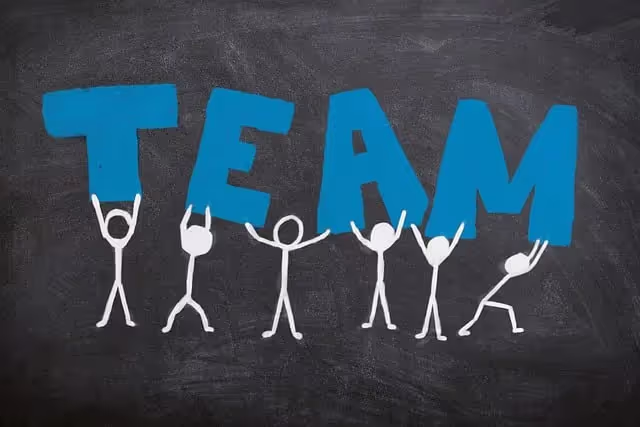Working in a school comes with immense responsibility. Whether you're a teacher, administrator, janitor, counselor, or volunteer, you play a vital role in shaping the environment where children grow and learn. Because of this, school districts across the country implement strict screening processes to ensure the safety and wellbeing of students.
A core part of this vetting process is the background check. But what exactly could prevent someone from getting hired in a school setting? In this blog, we explore what disqualifies you from working in a school, the specific offenses that raise red flags, and how emerging practices like social media background checks are playing an increasingly important role.
Why Are Background Checks Important in Schools?
Schools are legally and ethically obligated to create safe spaces for children. Conducting background checks is one way to uphold this commitment. These checks allow educational institutions to verify the integrity, safety, and reliability of individuals applying to work with or around students.
Beyond checking criminal history, modern background checks include various components such as employment verification, education verification, reference checks, and even social media screening. Together, these checks aim to prevent harm and protect a school's reputation.
What Disqualifies You From Working In A School?
There are several types of disqualifying offenses or behaviors that may prevent someone from being hired in a school setting. These disqualifications can differ slightly by state or district, but some red flags are universally recognized.
1. Violent Felonies
Violent offenses are among the most serious disqualifiers. Crimes such as assault with a deadly weapon, armed robbery, or attempted murder indicate a potential threat to students and staff. Most school districts automatically disqualify individuals with these convictions.
2. Sexual Offenses
Any conviction related to sexual misconduct, especially involving children, is a major red flag. This includes:
- Sexual abuse or assault
- Possession or distribution of child pornography
- Indecent exposure
- Solicitation of a minor
Federal law prohibits schools from hiring individuals who are listed on the National Sex Offender Registry. Even if the crime occurred decades ago, such offenses are disqualifying.
According to the Child Welfare Information Gateway, all 50 states require background checks for prospective school employees, with most statutes including mandatory checks against child abuse and sex offender registries.
3. Child Abuse or Neglect
Any past incidents involving child abuse, child endangerment, or neglect are grounds for immediate disqualification. School districts conduct checks through state child abuse registries and often require fingerprint-based searches to confirm this information.
4. Drug Offenses
Convictions related to drug manufacturing, trafficking, or distribution are often disqualifying, particularly if they are recent. While minor drug possession charges might not automatically disqualify a candidate, many schools evaluate these on a case-by-case basis, considering the severity and recency of the offense.
5. Theft or Financial Crimes
Schools place a high value on integrity and trustworthiness, especially for staff members who handle sensitive student records or financial responsibilities. Convictions for embezzlement, fraud, or theft may lead to disqualification.
6. Weapons Charges
Unlawful possession of a firearm or use of a weapon in a crime is a major concern for schools. Candidates with such histories may be perceived as a risk to school safety.
7. False Information on Application
Providing false or misleading information during the hiring process is itself a disqualifier. If a school discovers discrepancies in your resume, criminal history, or educational credentials, it could lead to a job offer being rescinded or employment terminated.
What Disqualifies You From Working In A School for Background Check Purposes?
The phrase "what disqualifies you from working in a school for background check purposes" refers to the legal and administrative criteria used during the vetting process. These vary based on federal, state, and local regulations, but common disqualifiers include:
- Felony convictions involving moral turpitude
- Misdemeanor offenses involving minors or schools
- Open criminal cases
- Active restraining orders involving children
- Refusal to consent to a background check
Some districts use fingerprint-based checks that are submitted to the FBI, while others use name-based checks or third-party verification services.
Additionally, social media screening for employment is emerging as a standard part of modern background checks. Employers may assess a candidate’s online behavior for signs of aggression, discrimination, or inappropriate conduct.
How Long Do Disqualifications Last?
Whether an offense leads to a permanent or temporary disqualification often depends on its nature and the policies of the school district. For example:
- Sexual or violent crimes usually result in permanent disqualification.
- Drug offenses may carry a 5–10 year disqualification period, after which reapplication is allowed with evidence of rehabilitation.
- Misdemeanors or less severe offenses may be evaluated individually, considering time passed and behavior since the incident.
Appeals processes are sometimes available for individuals who believe they were wrongfully disqualified or have compelling evidence of change.
Can You Work In a School With a Criminal Record?
Not all criminal records lead to automatic disqualification. Many school districts take a nuanced approach, examining:
- The type of crime
- How long ago it occurred
- Whether the individual has completed rehabilitation
- The relevance of the crime to the job role
For instance, data from the Bureau of Justice Statistics reveals that approximately 67.8% of released prisoners are re-arrested within three years. However, recidivism rates vary significantly based on the type of offense and access to rehabilitation programs. School districts often use this type of data to inform policies that balance safety with second chances.
Transparency and honesty during the application process are critical. If you have a criminal record, being upfront and demonstrating rehabilitation can make a significant difference.
Social Media’s Growing Role in School Hiring
Schools are increasingly turning to social media background checks to evaluate potential hires beyond traditional vetting methods. These checks can reveal patterns of behavior not evident through criminal records alone.
A candidate may face disqualification if their public profiles contain:
- Hate speech or discriminatory remarks
- Threats or glorification of violence
- Sexually explicit content
- Cyberbullying or harassment
- Evidence of substance abuse
Phyllo’s platform offers secure, permission-based access to verified social media content, helping institutions maintain ethical and privacy-compliant checks. If you're applying for a job in education, it's smart to audit your social presence beforehand.
Final Thoughts: Transparency and Trust Matter
Understanding what disqualifies you from working in a school is essential if you plan to pursue a career in education or child-related services. The goal of these screening procedures is not to penalize people with difficult pasts but to prioritize the safety and development of students.
If you have a criminal record or questionable online content, it doesn’t necessarily mean you’re unfit for employment. But it does mean you’ll need to be honest, prepared to explain your circumstances, and willing to show evidence of personal growth.
As the educational workforce becomes more digitized, integrating tools like social media screening into the background check process helps schools maintain higher standards of accountability and trust.
Looking to modernize your school’s screening processes? Explore Phyllo to see how real-time social data can enhance your background verification workflows.









